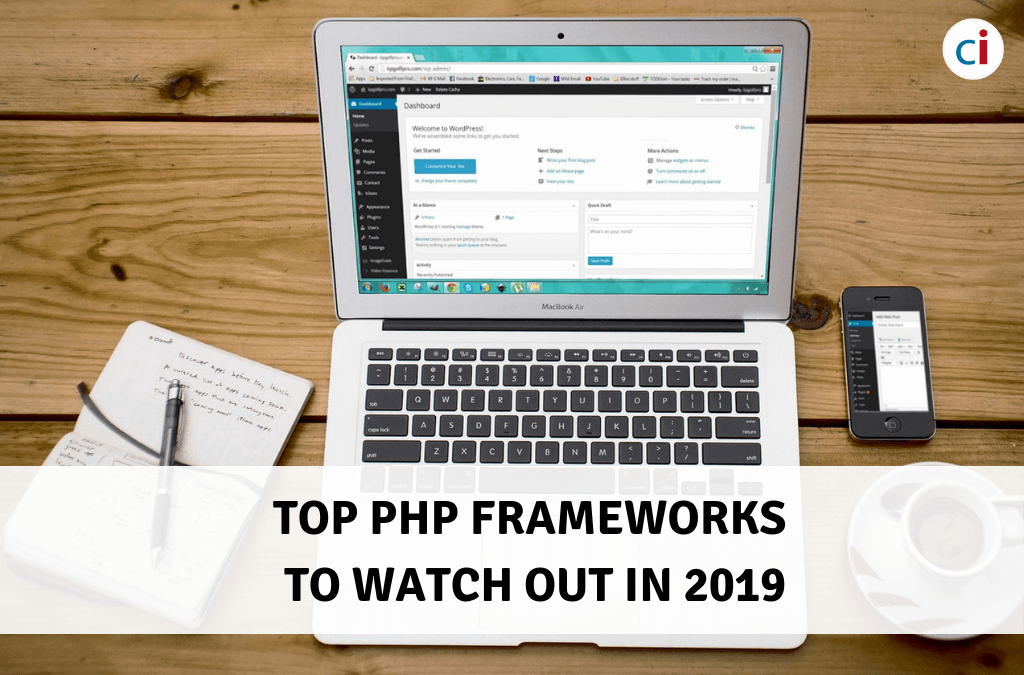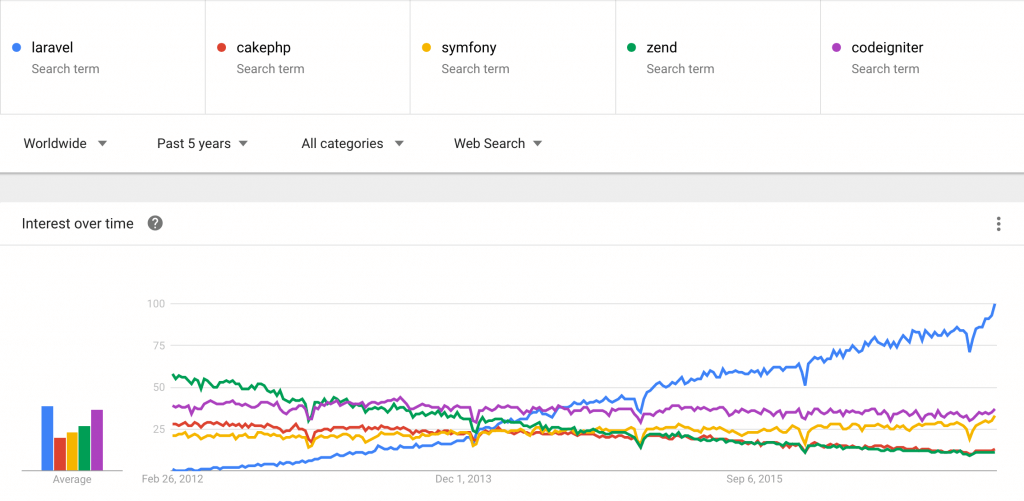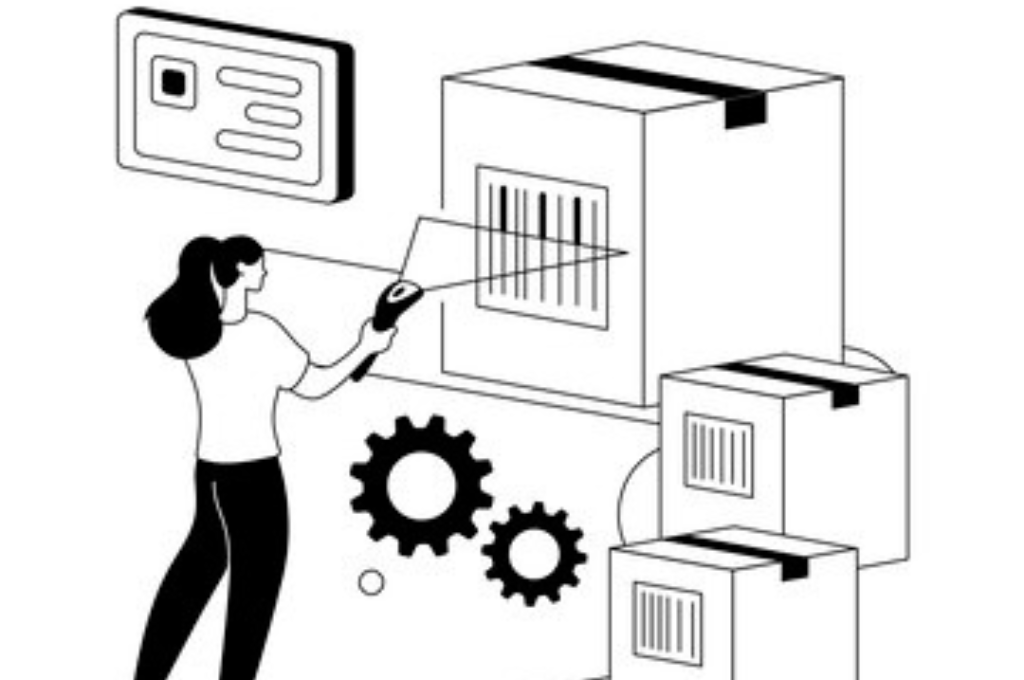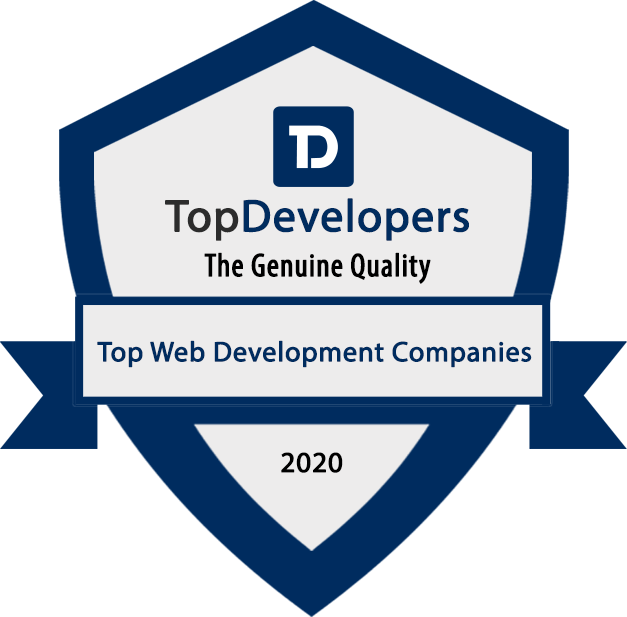PHP framework is a platform which allows you to develop web applications using PHP. It provides a basic structure to develop your web application by providing the facility for rapid application development (RAD). It also helps in saving a lot of time as you do not need to produce repetitive code to build your application.
Frameworks are very beneficial for beginners as they provide them a platform to create stable code by providing features for easy database connectivity and more. Since PHP development is getting more popular, the demand for developers has increased, and companies hire PHP developers to develop their applications.
Advantages of Using PHP Frameworks
Since the inception of PHP, several new updates have been introduced in the market. These new improvements and updates have enhanced the handling, maintenance, and efficiency of the code across several parameters. Mentioned below are some of the most noteworthy advantages of using PHP frameworks:
Time-saving: By using PHP frameworks for development you can save a lot of your time and effort as it helps in speeding up the development process. You can reuse the code you have written across different projects while using frameworks. Frameworks also provide some pre-built modules that can be included in your application to perform complex tasks.
Stable: Frameworks make the coding process very easy and far less complicated. This is the reason even beginners do not have any trouble in developing PHP scripts. PHP frameworks help in stabilizing the code that is written by providing many pre-defined modules to perform complex tasks like database connectivity.
Easy Availability: There are a number of free PHP frameworks available for you to choose from. Sometimes a PHP development agency also builds their own framework, but it is always better to hire a PHP development team to do so.
PHP Frameworks That Will Dominate The Market In 2019
Here's the list of the best PHP Frameworks in 2019:
1. Laravel
Laravel is a very popular PHP framework and widely used by developers these days. It helps in developing highly robust applications. It is a highly flexible framework, and developers can customize features that they require.
GitHub Stars: 46,925+
Features:
- Implements ORM technology
- Provides access to databases directly with the help of its query builder
- Supports MVC architecture
- Is very flexible and scalable
- Laravel is a very secure framework
- It has a quick execution time
Pros of using Laravel:
- Documentation is easily available in Laravel
- The execution time of this framework is very little. It provides very fast execution of web applications
- Provides all the features like speed, security, robustness, flexibility and more.
Cons of using Laravel:
- It has a few bugs which need to be resolved
2. CakePHP
CakePHP is one of the best PHP Frameworks available and can be used and understood by beginners and expert developers alike. It functions on the principles of rapid application development (RAD). It has a great support system, is a very simple and scalable framework and thus has become a popular choice for developers.
GitHub Stars: 7,692+
Features:
- It provides great support for MVC architecture
- Provides features for Object Relational Mapping(ORM)
- Since PHP is an object-oriented language, it has all the features of OOPs including class inheritance
- CakePHP is scalable as it can be easily extended using plug-ins
- It provides built-in validation
- This framework has features for CRUD operations (Create, Read, Update, Delete).
Pros of using CakePHP:
- Is very easy to understand and use even for beginners
- Works on MVC architecture
- Provides facility to create reusable code
- It is an open source framework and available easily on the internet
- Provides easy database management
- Uses ORM Technique
Cons of using CakePHP:
- There are no defined guidelines for documentation
- You have to update the default routes for creating URL’s which is a lot of work as compared to other PHP frameworks
- It is one of the simpler frameworks available in the market. There are a number of newer frameworks with more interesting features that have come up now.
- It provides only one-way routing which is its disadvantage when compared to other frameworks.
3. Symfony
Symfony is one of the most reliable PHP frameworks and was launched in the year 2005. It provides great features and works on MVC architecture to develop robust applications.
GitHub Stars: 18,956+
Features:
- It is an MVC based system
- It has Flexible URI routing
- Provides features for session management
- Reusability of code is possible in Symfony
- Symfony provides database classes with support for different platforms
- It provides security against cross-site requests, forgery, and many more threats
Pros of using Symfony:
- Provides stable, fast and flexible application development
- Consume very little memory space
- It is available with configurable and independent elements
- It is scalable and has the capacity to expand itself
- Provides reusability of code
- Provides access to server API’s
Cons of using Symfony:
- Is a little harder to learn as compared to other frameworks
- You need to be familiar with other technologies like YAML and Doctrine to use Symfony
- It is not an ideal choice for small projects
4. Zend
It is a fully object-oriented framework and provides all the features of OOPs. It contains features like inheritance, encapsulation and more. It is a highly customizable framework and follows PHP best practices. It is very flexible and allows developers to add functionality according to their needs.
GitHub Stars: 5,659+
Features:
- It is purely an Object Oriented framework
- Implements the MVC architecture
- Supports a number of databases like SQL, PostgreSQL, and more
- It has a simple cloud API
- Provides features for flexible URI routing
- You can write reusable code which is easier to maintain
- Has many features like session management, data encryption and more
Pros of using Zend:
- It is a loosely coupled framework. This means that we can include and delete the features that we do not require very easily
- It is a very secure framework and supports industry standard encryption
- Zend includes PHPUnit which can be used to test the framework
Cons of using Zend:
- It is a large and heavy framework as compared to other frameworks
- This is not the best framework for beginners as it has complicated features which are hard to understand
- It provides heavy documentation for the large number of features that are included in the framework. This documentation can be very confusing and difficult to understand
5. CodeIgniter
CodeIgniter is an open source PHP framework which is easy to use and is known for its high speed and performance. It provides very simple solutions and contains a rich collection of libraries of tutorials, guides, and Wikipedia to help developer better understand its features.
GitHub Stars: 16,662+
Features:
- It is a very lightweight framework
- It supports MVC architecture
- It has many database classes to support different platforms
- It contains many classes to help developers perform complicated tasks
- Has many features like security, data encryption, session management, and more
Pros of using CodeIgniter:
- It is very easy to learn and deploy
- It is a lightweight framework
- It has a rich collection of libraries and classes
- Provides easy to mage MVC architecture
Cons of using CodeIgniter:
- It can be a little difficult to make changes in the code
- Does not contain many OOPs features and is based on PHP only
- Does not contain a built-in ORM
As mentioned above, several frameworks of PHP have been released from the first day of its launch. The screenshot below skims through the state of the individual popularity of the top PHP Frameworks in recent years.
Comparison between Top 5 PHP Frameworks
Here is a comparison between the most popular PHP frameworks on the basis of:
- Features
- Documentation
- Ease of implementation
|
Framework |
Features |
Documentation |
Community Support |
Ease of Implementation |
|---|---|---|---|---|
|
Laravel |
Implements ORM technology
Access to databases directly with the help of its query builder
Supports MVC architecture
Flexible and scalable
Secure framework
Fast execution
|
Easy Documentation
|
Full Community Support
|
 |
|
CakePHP |
Works on MVC
Has ORM features
Contains all features of OOps
Scalable
Built-in validation
Supports CRUD operations
|
No specific guidelines for documentation
|
Weak Support |
 |
| Symfony |
Based on MVC
Flexible URI routing
Session management
Reusability of code
Database classes support different platforms
Security against cross-site requests, forgery, and many more threats
|
Good Documentation
|
Active Community Support
|
 |
|
Zend
|
Object Oriented framework
Implements MVC architecture
Supports many Databases like SQL, PostgreSQL, etc
It has a simple cloud API
Features for flexible URI routing
Reusability of code
Features like session management, data encryption and more
|
Difficult Documentation
|
Active Community Support
|
 |
|
CodeIgniter
|
Lightweight framework Supports MVC architecture Classes to help developers perform complicated tasks Has many features like security, data encryption, session management, and more |
Well-written Documentation
|
Lacks widespread support |
 |
Implements ORM technologyAccess to databases directly with the help of its query builderSupports MVC architectureFlexible and scalableSecure frameworkFast executionEasy DocumentationFull Community Support
Choosing the Right PHP Framework for your Project
Before choosing a framework for your project, you need to be sure of all the features you may need in your project and what kind of project are you going to work on. You need to ask yourself the following questions:
● Are you skilled at PHP development?
If not, then select the framework which provides easy to understand features.
● What kind of application do you want to build?
For example, if you want to develop an e-commerce website you need a framework which provides payment gateways.
● What features do you require from the framework?
If you know your project thoroughly you can easily determine the features that you will be using for its development. Choose the framework which provides those features.
Summing Up
PHP Frameworks are present to make your job of coding easier and faster. They provide many PHP Development Solutions that help you in developing your application. You can develop efficient code which is also concise and effective using these PHP Development Services. There are many good frameworks available in the market that are open source, all you need to do is find the best one for you and get started on your PHP development.
Looking to build your own PHP website? Look no further.
At Classic Informatics, we deliver expert PHP development services for cutting-edge, interactive and scalable products and applications. Our PHP developers and programmers are experienced to resolve problems that arise from different frameworks and libraries.




























